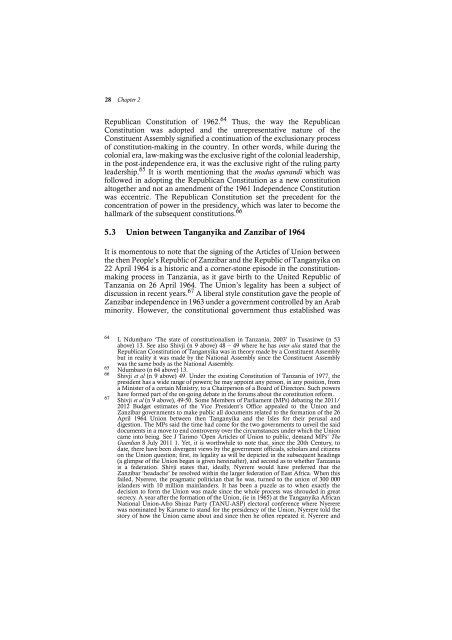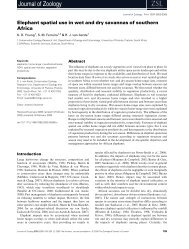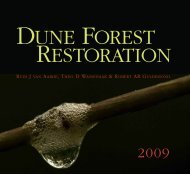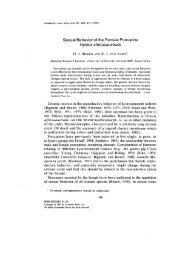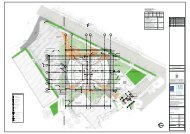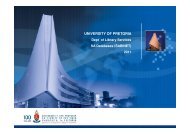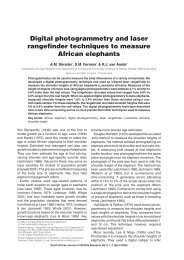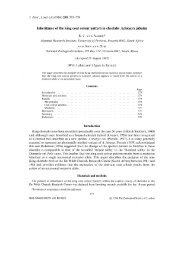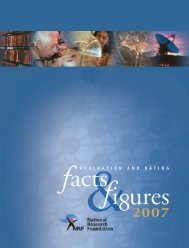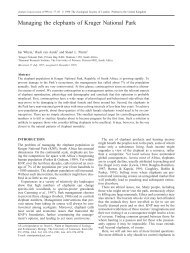Constitutionalism and Democratic Governance in Africa: - PULP
Constitutionalism and Democratic Governance in Africa: - PULP
Constitutionalism and Democratic Governance in Africa: - PULP
Create successful ePaper yourself
Turn your PDF publications into a flip-book with our unique Google optimized e-Paper software.
28 Chapter 2<br />
Republican Constitution of 1962. 64 Thus, the way the Republican<br />
Constitution was adopted <strong>and</strong> the unrepresentative nature of the<br />
Constituent Assembly signified a cont<strong>in</strong>uation of the exclusionary process<br />
of constitution-mak<strong>in</strong>g <strong>in</strong> the country. In other words, while dur<strong>in</strong>g the<br />
colonial era, law-mak<strong>in</strong>g was the exclusive right of the colonial leadership,<br />
<strong>in</strong> the post-<strong>in</strong>dependence era, it was the exclusive right of the rul<strong>in</strong>g party<br />
leadership. 65 It is worth mention<strong>in</strong>g that the modus oper<strong>and</strong>i which was<br />
followed <strong>in</strong> adopt<strong>in</strong>g the Republican Constitution as a new constitution<br />
altogether <strong>and</strong> not an amendment of the 1961 Independence Constitution<br />
was eccentric. The Republican Constitution set the precedent for the<br />
concentration of power <strong>in</strong> the presidency, which was later to become the<br />
hallmark of the subsequent constitutions. 66<br />
5.3 Union between Tanganyika <strong>and</strong> Zanzibar of 1964<br />
It is momentous to note that the sign<strong>in</strong>g of the Articles of Union between<br />
the then People’s Republic of Zanzibar <strong>and</strong> the Republic of Tanganyika on<br />
22 April 1964 is a historic <strong>and</strong> a corner-stone episode <strong>in</strong> the constitutionmak<strong>in</strong>g<br />
process <strong>in</strong> Tanzania, as it gave birth to the United Republic of<br />
Tanzania on 26 April 1964. The Union’s legality has been a subject of<br />
discussion <strong>in</strong> recent years. 67 A liberal style constitution gave the people of<br />
Zanzibar <strong>in</strong>dependence <strong>in</strong> 1963 under a government controlled by an Arab<br />
m<strong>in</strong>ority. However, the constitutional government thus established was<br />
64<br />
L Ndumbaro ‘The state of constitutionalism <strong>in</strong> Tanzania, 2003’ <strong>in</strong> Tusasirwe (n 53<br />
above) 13. See also Shivji (n 9 above) 48 – 49 where he has <strong>in</strong>ter alia stated that the<br />
Republican Constitution of Tanganyika was <strong>in</strong> theory made by a Constituent Assembly<br />
but <strong>in</strong> reality it was made by the National Assembly s<strong>in</strong>ce the Constituent Assembly<br />
was the same body as the National Assembly.<br />
65 Ndumbaro (n 64 above) 13.<br />
66<br />
Shivji et al (n 9 above) 49. Under the exist<strong>in</strong>g Constitution of Tanzania of 1977, the<br />
president has a wide range of powers; he may appo<strong>in</strong>t any person, <strong>in</strong> any position, from<br />
a M<strong>in</strong>ister of a certa<strong>in</strong> M<strong>in</strong>istry, to a Chairperson of a Board of Directors. Such powers<br />
have formed part of the on-go<strong>in</strong>g debate <strong>in</strong> the forums about the constitution reform.<br />
67<br />
Shivji et al (n 9 above), 49-50. Some Members of Parliament (MPs) debat<strong>in</strong>g the 2011/<br />
2012 Budget estimates of the Vice President’s Office appealed to the Union <strong>and</strong><br />
Zanzibar governments to make public all documents related to the formation of the 26<br />
April 1964 Union between then Tanganyika <strong>and</strong> the Isles for their perusal <strong>and</strong><br />
digestion. The MPs said the time had come for the two governments to unveil the said<br />
documents <strong>in</strong> a move to end controversy over the circumstances under which the Union<br />
came <strong>in</strong>to be<strong>in</strong>g. See J Tarimo ‘Open Articles of Union to public, dem<strong>and</strong> MPs’ The<br />
Guardian 8 July 2011 1. Yet, it is worthwhile to note that, s<strong>in</strong>ce the 20th Century, to<br />
date, there have been divergent views by the government officials, scholars <strong>and</strong> citizens<br />
on the Union question; first, its legality as will be depicted <strong>in</strong> the subsequent head<strong>in</strong>gs<br />
(a glimpse of the Union began is given here<strong>in</strong>after), <strong>and</strong> second as to whether Tanzania<br />
is a federation. Shivji states that, ideally, Nyerere would have preferred that the<br />
Zanzibar ‘headache’ be resolved with<strong>in</strong> the larger federation of East <strong>Africa</strong>. When this<br />
failed, Nyerere, the pragmatic politician that he was, turned to the union of 300 000<br />
isl<strong>and</strong>ers with 10 million ma<strong>in</strong>l<strong>and</strong>ers. It has been a puzzle as to when exactly the<br />
decision to form the Union was made s<strong>in</strong>ce the whole process was shrouded <strong>in</strong> great<br />
secrecy. A year after the formation of the Union, (ie <strong>in</strong> 1965) at the Tanganyika <strong>Africa</strong>n<br />
National Union-Afro Shiraz Party (TANU-ASP) electoral conference where Nyerere<br />
was nom<strong>in</strong>ated by Karume to st<strong>and</strong> for the presidency of the Union, Nyerere told the<br />
story of how the Union came about <strong>and</strong> s<strong>in</strong>ce then he often repeated it. Nyerere <strong>and</strong>


